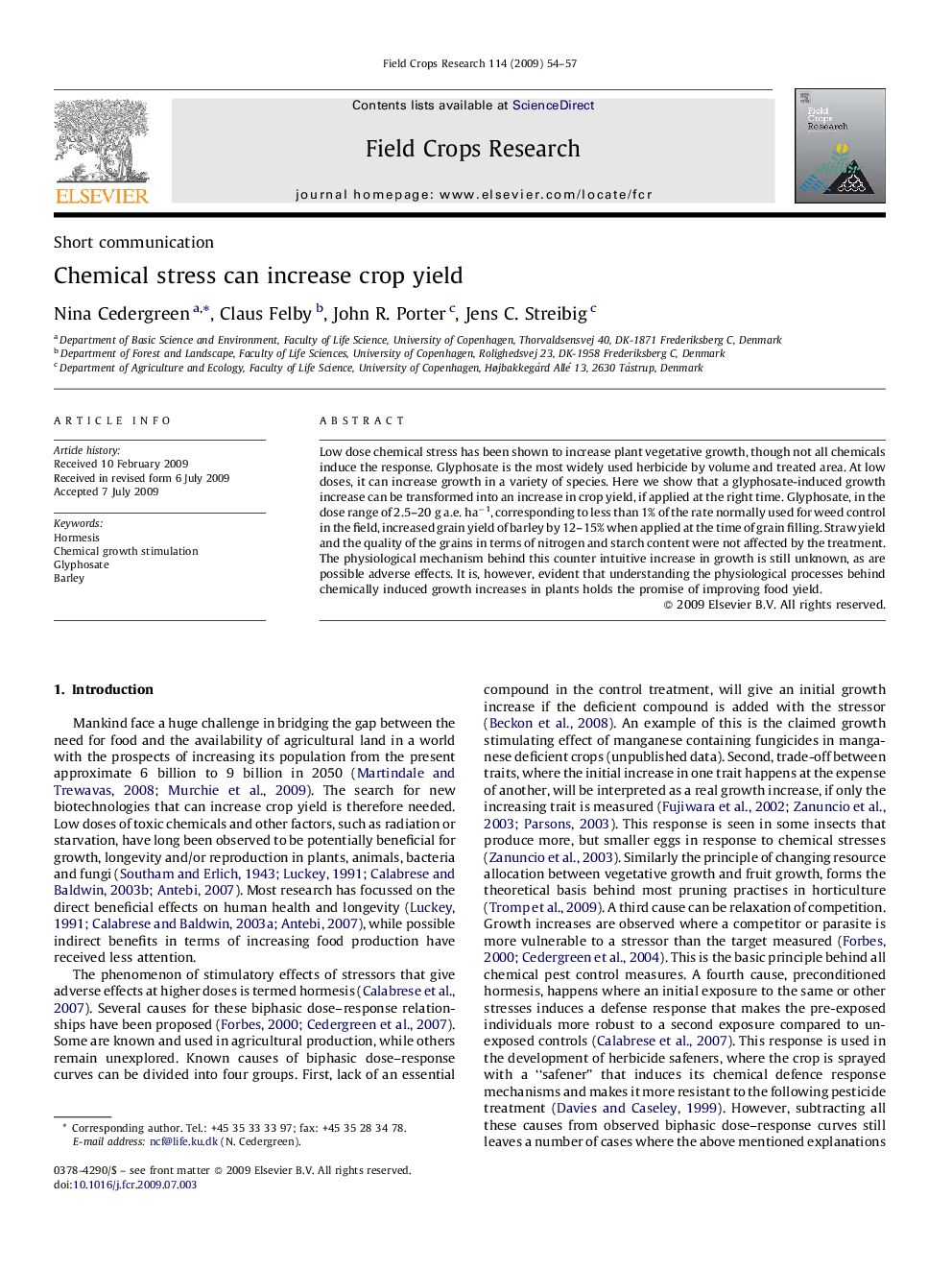| Article ID | Journal | Published Year | Pages | File Type |
|---|---|---|---|---|
| 4511164 | Field Crops Research | 2009 | 4 Pages |
Low dose chemical stress has been shown to increase plant vegetative growth, though not all chemicals induce the response. Glyphosate is the most widely used herbicide by volume and treated area. At low doses, it can increase growth in a variety of species. Here we show that a glyphosate-induced growth increase can be transformed into an increase in crop yield, if applied at the right time. Glyphosate, in the dose range of 2.5–20 g a.e. ha−1, corresponding to less than 1% of the rate normally used for weed control in the field, increased grain yield of barley by 12–15% when applied at the time of grain filling. Straw yield and the quality of the grains in terms of nitrogen and starch content were not affected by the treatment. The physiological mechanism behind this counter intuitive increase in growth is still unknown, as are possible adverse effects. It is, however, evident that understanding the physiological processes behind chemically induced growth increases in plants holds the promise of improving food yield.
